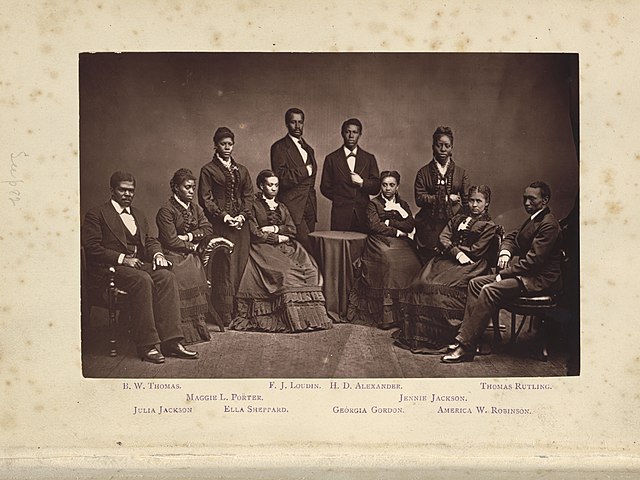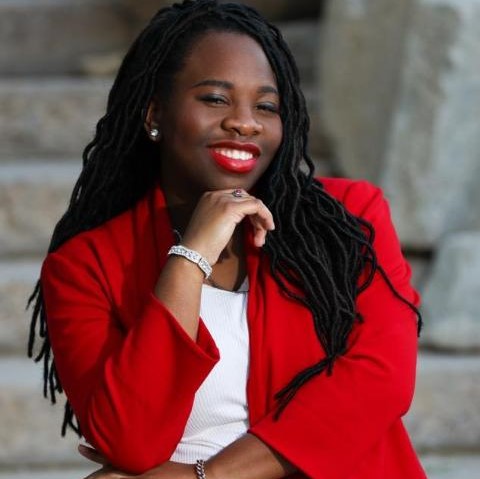African American spirituals are one of, if not the most important genres of American music as they are the foundation of African American culture and music. Now, what exactly are spirituals? They are songs written by African Americans who were enslaved during the 18th and 19th centuries. They were often sung in religious and communal gatherings as a way to worship and to have coded messages of resistance and escape.
Now another genre of music that emerged during the 19th and 20th century were minstrels. Minstrelsy is the act of portraying stereotypes of Black people in the most extreme racist fashion. Back then, there were minstrel shows where white actors would make themselves look like a caricature of Black people by doing Blackface, which involved painting their skin black and making a large red outline around their lips. They would also make fun of how Black people spoke by exaggerating the dialect, which we know as vocal Blackface. With minstrel shows came minstrel songs, which exaggerated spiritual lingo and musical aspects. While most minstrel songs are no longer performed due to their racist nature, some are still in circulation under the “American folk songs” genre.
We live in a time now where minstrel songs are no longer performed due to their racist nature, with the main point being about the vocal Blackface. However, there still needs to be more clarity about how appropriate it is for non-Black people to perform spirituals with the traditional African American dialect. As a Black musician born and raised here in El Paso, saying there is a lack of education regarding spirituals, Black culture, and music, in general, is an understatement. Therefore, it makes sense to have clarity and clarification on whether it is appropriate to pronounce the words as written in spirituals. The answer is yes, and here is why:
Spirituals should be approached and taught like any other genre of music. That includes doing the correct dialect written by the composer. To perform a dialect other than written would be an erasure of culture and history. Instead of shying away from it due to being unfamiliar with the dialect, understand that it is the way it is because that’s how African Americans spoke during those times. It’s the same concept when learning diction for a song in another language, such as Italian, German, French, Spanish, or Latin.
For directors of choirs whose demographic is largely non-Black, I offer this advice regarding teaching spirituals: Teach them about the history of spirituals and the difference between minstrelsy and spirituals. Have them understand that performing the dialect written in a spiritual by a Black composer is not an act of minstrelsy, and to perform it without that dialect would be an insult. Understand their initial hesitancy due to the lack of exposure and understanding of Black history, culture, and music, and hear their questions; a discussion can be had, and everyone can understand better.
As a Black composer who has arranged spirituals, I would personally be offended if my spiritual arrangements were not performed with the traditional dialect as written. As I see it, Black people have worked tirelessly for our proper place to be seen, heard, and accepted. It is the same plight regarding Black music and Black musicians. Not performing the music as it was written would be an erasure of that history and a rejection of where and how it all started.
Moving forward, this helps both choral educators and singers understand the context behind the dialect in spirituals and be more receptive to conversations about it.



